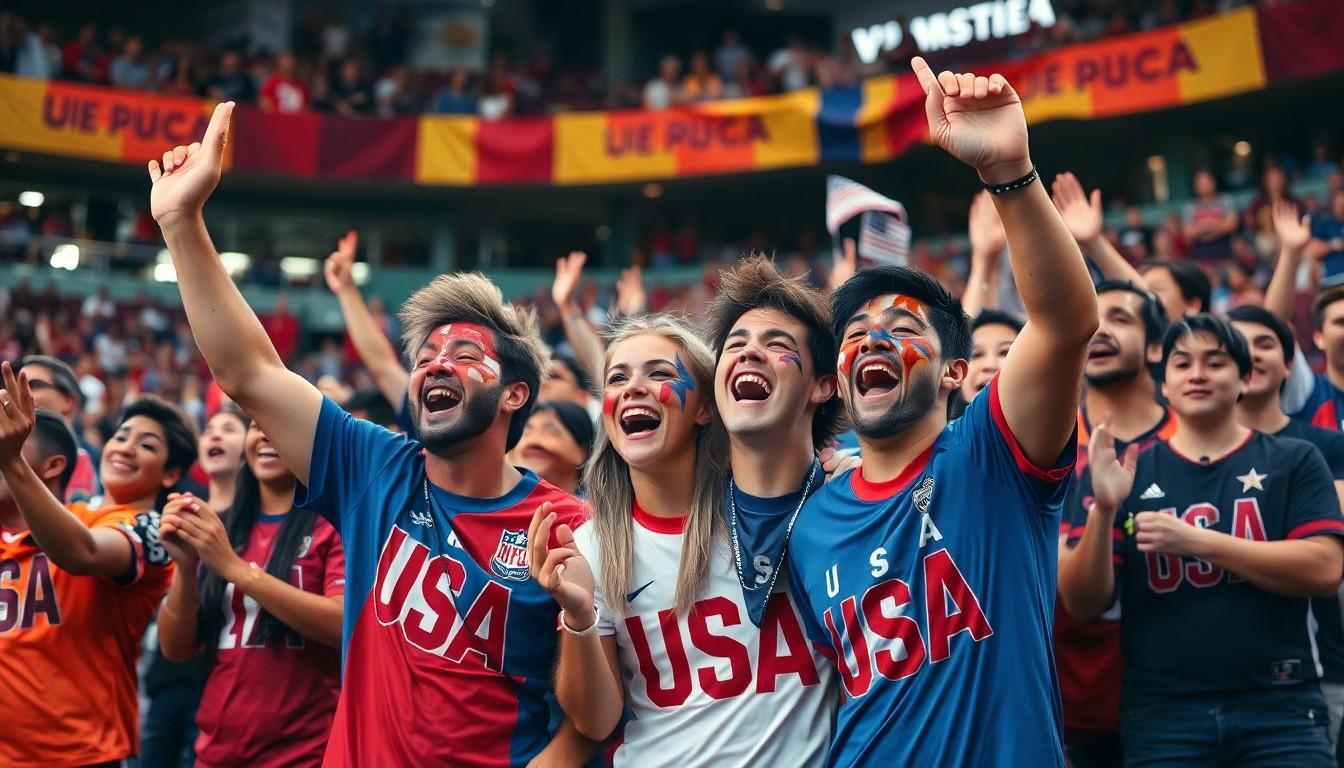Sports and culture go together like peanut butter and jelly, creating a delicious blend that fuels passion and unity. From the roaring crowds at stadiums to the quiet rituals of local games, they shape identities and foster connections. It’s not just about the score; it’s about the stories, the rivalries, and the unforgettable moments that weave the fabric of society.
Imagine a world without the thrill of a last-minute goal or the electrifying atmosphere of a championship parade. Sports ignite emotions and bring communities together, transcending barriers and sparking conversations. Whether it’s the graceful dance of a figure skater or the thunderous applause for a touchdown, these moments reflect cultural values and shared experiences. So, let’s dive into this fascinating interplay between sports and culture, where every game tells a story worth exploring.
Sports and Culture
Sports and culture share an intricate bond that influences societies worldwide. This connection manifests through rituals, customs, and traditions surrounding various sports. Each sport often reflects cultural values, showcasing national pride and communal identity.
In many regions, local sports teams become symbols of community spirit. Events fill stadiums and public spaces, bringing together diverse groups. Spectators unite to celebrate victories and cope with defeats, forming lasting memories.
Cultural significance extends to sports attire and fan traditions. Colors, logos, and chants signify allegiance, creating a sense of belonging. Cultural narratives emerge from legendary athletes whose lives inspire future generations.
Participation in sports reinforces cultural identity, especially among youth. Engaging in team activities instills discipline and teamwork. Programs foster inclusivity, bridging gaps among different backgrounds and promoting social cohesion.
Global events like the Olympics highlight this relationship on a larger scale. Countries showcase their heritage through opening ceremonies, athletes’ performances, and regional sports. These aspects create an opportunity for cultural exchange, connecting nations through shared experiences.
Moreover, sports often serve as a platform for social change. Movements that address inequalities find a voice in athletic arenas. Athletes wield influence to advocate for human rights, amplifying messages that resonate beyond the field.
The intersection of sports and culture enriches lives, emphasizing the importance of community engagement. Understanding this dynamic enhances appreciation for various traditions and practices linked to sports. Engaging with sports culture opens avenues for storytelling that celebrate achievements and struggles alike.
The Impact Of Sports On Cultural Identity

Sports significantly shape cultural identity by fostering a sense of belonging and pride. Cultural representation often emerges through participation in national sporting events.
National Pride And Representation
National pride soars during international competitions. Countries showcase their unique heritage through themes, colors, and symbols associated with their teams. Flag waving becomes commonplace, uniting citizens in celebration. Major events like the FIFA World Cup galvanize fans, who express enthusiasm for their nation’s athletes. Athletes often serve as cultural ambassadors, embodying values and traditions. Success on the global stage enhances national identity, creating shared narratives that resonate with communities. Celebrated victories become historical milestones, deepening emotional connections to national culture.
Community Engagement And Social Cohesion
Local sports events function as powerful community engagement tools. They bring together diverse groups, encouraging collaboration and camaraderie. Shared experiences during games foster social bonds that transcend differences. Participation in team sports cultivates teamwork and mutual respect among residents. Grassroots initiatives promote inclusivity, ensuring everyone feels welcomed. Local teams symbolize pride, inspiring younger generations to embrace cultural values. Events like community tournaments strengthen ties, offering platforms for storytelling and shared memories. Each cheer and chant echoes a commitment to unity and cultural heritage.
Cultural Reflections In Sports
Sports serve as a significant cultural mirror, reflecting societal values, traditions, and artistic expressions.
Art And Literature Inspired By Sports
Art and literature draw inspiration from the world of sports, illustrating its profound influence. Numerous artists depict athletes in paintings and sculptures, capturing their movements and emotions. Literature, encompassing novels and poetry, often explores themes of competition, perseverance, and identity. Iconic works such as “The Natural” by Bernard Malamud show how sports can symbolize human struggle. Documentaries celebrate the stories behind legendary athletes, enriching cultural narratives. Additionally, folk art often integrates sports motifs, showcasing regional pride. Overall, the arts thrive on the connection sports create with culture.
The Role Of Media In Shaping Perspectives
Media plays a crucial role in shaping public perspectives on sports and culture. News coverage highlights achievements and controversies, influencing audience perceptions. Social media platforms amplify fan interactions, creating communities around teams and events. Consequently, athletes become cultural icons, their stories resonating worldwide. Editorials and documentaries provide deeper insights into the societal implications of sports, prompting discussions on equality and representation. Live broadcasts create a shared experience, linking spectators across diverse cultures. Thus, media not only covers but actively shapes the narratives surrounding sports and their cultural significance.
Traditional Sports And Cultural Heritage
Traditional sports connect closely with cultural heritage, showcasing unique practices and beliefs rooted in communities. They reflect shared values and help retain identity across generations.
Preserving Indigenous Games
Indigenous games exemplify cultural traditions and promote heritage preservation. Communities actively participate in efforts to revitalize these games, often organizing local tournaments. Notable examples include Inuit games like the Knuckle Hop, which emphasizes physical skill and historical significance. These initiatives strengthen bonds among participants and transfer knowledge to younger generations. Organizations often collaborate with cultural leaders to ensure authenticity, weaving stories of traditions into gameplay. Such actions create a platform for storytelling, merging history and recreation into one enriching experience.
Globalization Of Traditional Sports
Globalization impacts traditional sports by introducing them to wider audiences. As cultures exchange practices, unique games like Kabaddi from India gain international recognition. Fans from various backgrounds come together to celebrate these events, resulting in vibrant community experiences. Cultural festivals often highlight traditional sports, showcasing rich heritages to an expanding audience. Increased visibility encourages preservation efforts and inspires new generations to engage. This phenomenon enhances cultural dialogue, where diverse narratives enrich the global sports landscape, allowing individuals to connect through shared interests while promoting inclusivity.
The interplay between sports and culture is a vibrant tapestry that weaves together identity, community, and shared experiences. This connection not only fosters unity but also enriches cultural narratives through the stories of athletes and teams. As communities rally around local and national events, they celebrate their heritage and create lasting memories that resonate through generations.
Sports serve as a powerful medium for cultural expression, reflecting societal values and inspiring creativity in art and literature. By embracing both traditional and contemporary sports, communities can preserve their unique identities while promoting inclusivity and collaboration. Ultimately, the relationship between sports and culture continues to shape lives, fostering connections that transcend boundaries and celebrate the essence of humanity.

